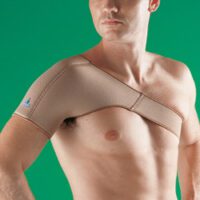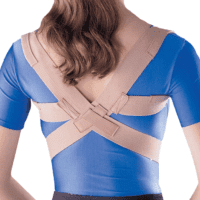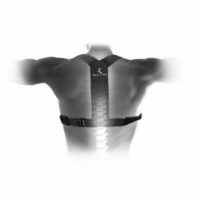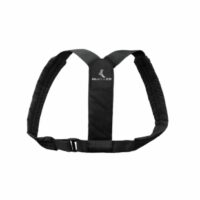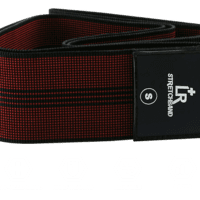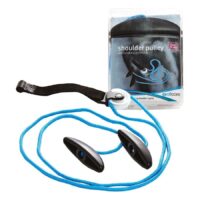Rotator Cuff Exercises
Article by John Miller
Rotator Cuff Exercises
Rotator Cuff Exercises: Strengthening and Protecting Your Shoulder

Why are Rotator Cuff Exercises Important?
Shoulder stability is crucial for maintaining a full range of motion and avoiding injuries. The rotator cuff, a group of muscles and tendons surrounding the shoulder joint, plays a vital role in this stability. Strengthening the rotator cuff is key to preventing injuries like tendinopathies, rotator cuff tears, and shoulder impingement syndrome.
As we age, the rotator cuff tendons lose elasticity, making them more susceptible to injury. This decline in muscle mass with ageing further increases the risk. Therefore, maintaining and improving the strength of the rotator cuff muscles becomes increasingly important to protect against common shoulder injuries.
How Do Rotator Cuff Muscles Function?
The rotator cuff consists of four main muscles:
- Supraspinatus: Located at the top of the shoulder, it helps lift the arm away from the body.
- Subscapularis: Found at the front of the shoulder, it allows internal rotation of the arm.
- Infraspinatus and Teres Minor: Positioned at the back of the shoulder, they facilitate external rotation.
Each muscle works in harmony to stabilise the shoulder joint. This stability is crucial, especially during overhead movements, as it helps prevent injury.
In addition to the rotator cuff muscles, the biceps tendon also plays a role in shoulder stability. The long head of the biceps tendon runs over the top of the humerus and connects at the shoulder joint. However, overloading the biceps can lead to bicipital tendinopathy, a condition where the tendon becomes inflamed and painful.
What Should You Do to Strengthen Your Rotator Cuff?
Strengthening the rotator cuff muscles is essential, but timing is everything. Premature strengthening can worsen an injury or delay healing. Therefore, it’s important to consult a physiotherapist to get advice tailored to your specific condition.
Rotator cuff exercises should not be done in isolation. Scapular stability is another key aspect of shoulder health. An experienced shoulder physiotherapist can assess your scapulohumeral rhythm and prescribe exercises that address any deficiencies. These exercises ensure that the shoulder and scapula work together effectively, reducing the risk of injury.
New Research: The Latest Findings on Rotator Cuff Health
Recent studies have highlighted the importance of a comprehensive approach to shoulder health. A systematic review published by de-Queiroz et al (2022) found that combined rotator cuff and scapular stabilisation exercises significantly improve shoulder function and reduce pain in patients with rotator cuff tendinopathy. This approach is now considered a gold standard in shoulder rehabilitation for non-operative treatment.
Conclusion: What to Do Next?
To maintain shoulder health and prevent injuries, it’s essential to strengthen your rotator cuff muscles and ensure scapular stability. For tailored advice and a personalised exercise plan, consult a qualified physiotherapist who has a special interest in shoulder injuries.
What to Do?
If you’re experiencing shoulder pain or discomfort, it’s time to consult with your physiotherapist. They can provide a comprehensive assessment and guide you through the best exercises to strengthen your rotator cuff and improve scapular stability.
Rochedale - Call 38410277
Book Online: RochedaleSalisbury - Call 32751044
Book Online: SalisburySandgate - Call 32691122
Book Online: SandgateRotator Cuff FAQs:
- Why are rotator cuff exercises important? Rotator cuff exercises are vital because they strengthen the muscles that stabilise the shoulder joint, helping to prevent injuries like tendinopathies and tears. Read more: Rotator Cuff Injuries.
- How do you strengthen your rotator cuff? Strengthening the rotator cuff involves specific exercises targeting the four muscles that support shoulder stability. It’s essential to perform these exercises correctly to avoid injury. Read more: Shoulder Stability Exercises.
- What happens if the rotator cuff is weak? A weak rotator cuff can lead to shoulder instability, increased risk of injuries, and conditions like impingement syndrome or tendinopathy. Read more: Shoulder Impingement.
- Who should perform rotator cuff exercises? Anyone who wants to maintain shoulder health, particularly athletes and those over 40, should perform rotator cuff exercises. These exercises can help prevent age-related muscle loss and injuries. Read more: Rotator Cuff Tear.
- Where can I find rotator cuff exercises? Your physiotherapist can provide you with a personalised exercise plan, or you can find general rotator cuff exercises online. However, always consult a professional before starting a new exercise regimen. Read more: Shoulder Exercise Program.
- When should I do rotator cuff exercises? Rotator cuff exercises should be performed regularly, especially if you’re recovering from an injury or trying to prevent one. Consult with a physiotherapist to determine the best frequency for your situation. Read more: Shoulder Post-Injury Rehab.
Related Articles
- Shoulder Impingement Syndrome: Discover how to identify and treat shoulder impingement syndrome.
- Rotator Cuff Tears: Learn about the causes, symptoms, and treatments for rotator cuff tears.
- Scapular Stabilisation Exercises: Find out why scapular stabilisation is key to shoulder health.
- Tendinopathies: Understand what tendinopathies are and how they can be treated.
- Post-Injury Rehabilitation: Explore the best practices for recovering from shoulder injuries.
- Shoulder Pain: Get insights into common causes of shoulder pain and how to manage it.
- Frozen Shoulder: Discover the symptoms and treatment options for frozen shoulder.
- Sports Injury Prevention: Learn about strategies to prevent sports-related injuries.
- Physiotherapy for Athletes: Read about tailored physiotherapy programs for athletes.
- Bicipital Tendinopathy: Understand what bicipital tendinopathy is and how it affects the shoulder.
- Rotator Cuff Injury Management: Discover comprehensive information on rotator cuff injuries and treatments.
- Scapular Stabilisation and Shoulder Function: Explore recent research on scapular stabilisation and its role in shoulder function.




